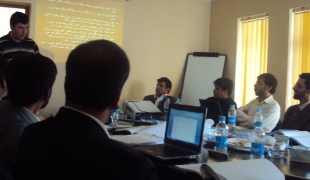International experts and human rights lawyers discuss the European Framework Statute for the Promotion of Tolerance with a view to promoting tolerance in European legal orders
On 9 and 10 February 2015, a conference on the theme of “tolerance and law” was held at the Max Planck Foundation. The conference’s focus was an in-depth debate on the “European Framework Statute for the Promotion of Tolerance”, the draft version of a model law for the promotion of tolerance in European legal systems. This draft of the model law was developed by a five-member expert group under the auspices of the European Council on Tolerance and Reconciliation. The group was made up of Prof. Dr. Yoram Dinstein and Prof. Dr. Rüdiger Wolfrum, who organised the conference, Prof. Dr. Daniel Thürer, who participated at the conference, as well as Dr. Ugo Genesio and Prof. Dr. Rein Müllerson.
The main topic discussed was the meaning of tolerance and supporting it in pluralistic societies from both a legal point of view and also in light of ongoing developments in Europe. Following an introduction outlining the model law and the activities of the expert group responsible, the first day of the conference saw the concept of tolerance being examined from the perspective of comparative law. This examination looked at tolerance as a concept in different national legal orders, the rulings of the European Court of Human Rights and the activities of different UN bodies. On this basis, a detailed and critical analysis of the expert group’s draft text for the model law was conducted on the second day.
Legal experts from various UN bodies and the European Court of Human Rights took part at the conference, along with renowned scholars from European universities and research institutes as well as research fellows from the Max Planck Foundation.
Amongst the numerous themes intensively discussed were the definition of tolerance and how it is specified as a legal principle, the limits of tolerance in liberal societies and approaches to intolerant forms of behaviour by private actors. Particular emphasis was placed on the relationships between existing legal instruments, such as national constitutional orders and international guarantees of human rights, especially the European Convention on Human Rights and the relevant United Nations treaties. Recommendations arrived at during the discussions are to be taken into account by the expert group during future work on the Framework Statute.
The conference was organised by Prof. Yoram Dinstein (University of Tel Aviv) and Prof. Rüdiger Wolfrum (Max Planck Foundation). The conference was supported by the Kantor Center for the Study of Contemporary European Jewry (University of Tel Aviv) and the Fritz Thyssen Foundation for the Promotion of Science.

